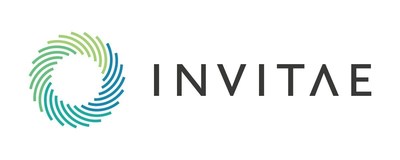SAN FRANCISCO, Oct. 8, 2020 /PRNewswire/ -- Tumor-only genetic sequencing misses medically actionable genetic variants in cancer patients that germline genetic tests identify, according to a new study published this week in JAMA Network Open that included researchers from Invitae (NYSE: NVTA), a leading medical genetics company. The study also found that current clinical guidelines on who should be offered germline testing following tumor sequencing are too narrow, missing patients whose care could benefit from information about their germline genetic profile. Taken together, the study suggests the use of both tumor and germline testing provides the most complete and actionable genetic profiling to inform cancer treatment.

"Tumor sequencing alone is not sufficient to provide the full genetic picture needed to inform cancer care. Our study uncovered a high rate of actionable findings from germline testing following tumor sequencing, including some which were missed by tumor profiling, offering a strong rationale for further integrating germline genetics into routine care for cancer patients," said Robert Nussbaum, M.D., chief medical officer of Invitae and one of the team of authors of the study from Invitae. "Complete genetic information impacts prognosis, precision therapy selection, clinical trial qualification and surgical decisions. Importantly, a number of patients in our study were experiencing their second cancer, one which could have potentially been caught earlier had their full genetic risk profile been known and appropriate actions taken."
The retrospective study of 2,023 cancer patients who received germline testing following tumor DNA sequencing found that nearly a third (30.5%) harbored a pathogenic germline variant. Importantly, eight percent of pathogenic germline variants were missed by tumor sequencing results reviewed for the study and 11 percent of these variants were identified in patients experiencing a second cancer. Approximately 20% of patients with pathogenic germline variants did not meet criteria for germline testing.
"The genetics of both the person and the tumor play an important role in making cancer treatment decisions. Expanding germline testing guidelines will ensure all cancer patients who can benefit from comprehensive genetics in their care will receive this information," said Dr. Nussbaum. "By capturing genetic information on both tumor biology and a patient's inherited risk of disease, we can develop more effective, personalized treatment plans and help inform family members of additional inherited risk, helping improve outcomes for both patient and family."
Germline testing assesses genetic changes carried in all the cells of the body, changes that a person already has from conception, while tumor profiling (somatic) sequencing analyzes alterations in DNA within a tumor that are often acquired and drive its growth, particularly for patients with advanced disease. While tumor sequencing can detect both somatic and some germline mutations, the most commonly ordered tests fall short in reporting pathogenic germline gene variants because of technical limitations and variant interpretation differences. This germline information can inform a wide range of clinical decisions, from prognosis to precision therapy selection, surgical decisions, reproductive choices and clinical trial qualification. In addition, germline genetic information has important implications for the families of cancer patients who may be at elevated risk of developing cancer themselves.
About Invitae
Invitae Corporation (NYSE: NVTA) is a leading medical genetics company, whose mission is to bring comprehensive genetic information into mainstream medicine to improve healthcare for billions of people. Invitae's goal is to aggregate the world's genetic tests into a single service with higher quality, faster turnaround time, and lower prices. For more information, visit the company's website at invitae.com.
Safe Harbor Statement
This press release contains forward-looking statements within the meaning of the Private Securities Litigation Reform Act of 1995, including statements relating to the implications of the study results; and the utility of germline genetic testing and information for cancer patients . Forward-looking statements are subject to risks and uncertainties that could cause actual results to differ materially, and reported results should not be considered as an indication of future performance. These risks and uncertainties include, but are not limited to: the company's history of losses; the company's ability to compete; the company's failure to manage growth effectively; the company's need to scale its infrastructure in advance of demand for its tests and to increase demand for its tests; the company's ability to use rapidly changing genetic data to interpret test results accurately and consistently; security breaches, loss of data and other disruptions; laws and regulations applicable to the company's business; and the other risks set forth in the company's filings with the Securities and Exchange Commission, including the risks set forth in the company's Quarterly Report on Form 10-Q for the quarter ended June 30, 2020. These forward-looking statements speak only as of the date hereof, and Invitae Corporation disclaims any obligation to update these forward-looking statements.
Contact:
Laura D'Angelo
pr@invitae.com
(628) 213-3283
![]() View original content to download multimedia:http://www.prnewswire.com/news-releases/new-study-finds-germline-genetic-testing-detects-actionable-findings-missed-by-tumor-only-sequencing-301148157.html
View original content to download multimedia:http://www.prnewswire.com/news-releases/new-study-finds-germline-genetic-testing-detects-actionable-findings-missed-by-tumor-only-sequencing-301148157.html
SOURCE Invitae Corporation


